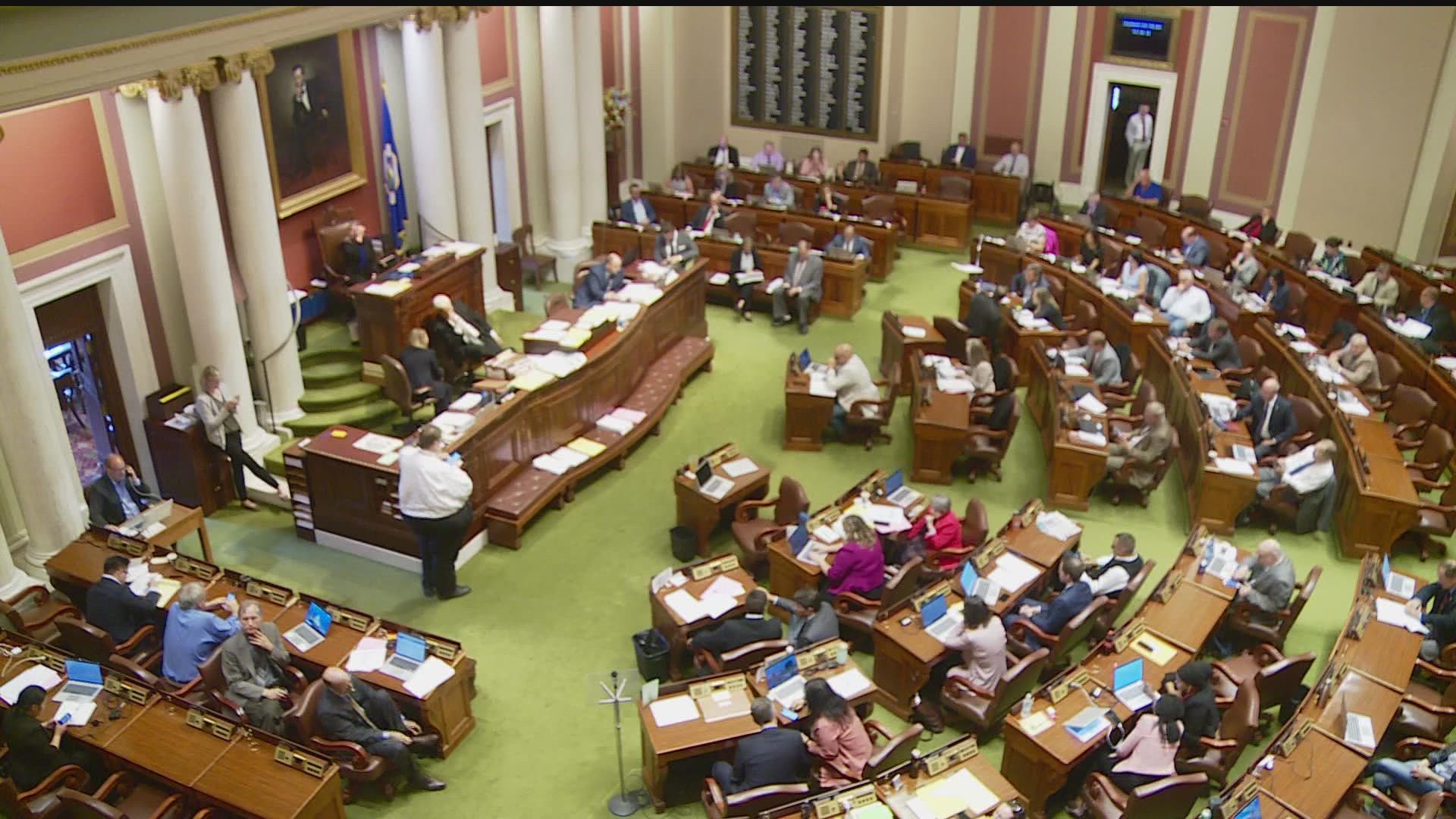ST PAUL, Minn. — Democrats are ready to move ahead with their agenda now that they've gained full control of the Minnesota Legislature and can rely on support from a DFL governor.
When the 2023 Session begins Tuesday, it will be the first time in a decade that one party has been in charge of the House, Senate and governor's office in Minnesota.
The only thing lawmakers are legally required to do before they leave on May 22 is to pass a balanced two-year budget. But there's a long list of Democratic priorities that Republicans no longer have the votes to block.
Those priorities include a major boost in aid to public schools, paid family leave, mandating carbon-free electricity generation by 2040, universal background checks for firearms, codifying abortion rights, a price-gouging bill, automatic voter registration, restoring felon voting rights, sports betting, and legalizing recreational cannabis.
Gov. Tim Walz has been on record as supporting marijuana legalization with a bill that puts in place a regulatory structure that would ensure Minnesota farmers, processors and retailers see the benefits. The legislation would also provide expungement of criminal records of those convicted of some cannabis-related crimes.
He also supports some tax forms, including making more taxpayers exempt from paying income tax on social security benefits. Many lawmakers want to go ahead and mark all social security income as tax-exempt, regardless of how wealthy the recipients are.
The state's record projected surplus of $17.6 billion also raises the energy level inside the capitol, as many interest groups will press legislators for a piece of that excess revenue pie.
Gov. Walz alluded to that fact in his inauguration address Monday.
"The era of gridlock is over. Minnesotans have chosen hope over fear, fact over fiction, and action over excuses. Our path is clear. It’s time to lead."
Later he told capitol reporters voters expect to see policymakers move beyond the annual tug-of-war between Senate Republicans and House Democrats.
"There was a message that they're tired of things getting bogged down and they want things to get done," Walz explained.
"So, I think this whole list of things you're talking about you can expect a lot of those things to get done."
Walz will roll out his spending requests from the legislature in a series of budget press conferences across the next few weeks. But in his inauguration address he made it clear that helping Minnesota's children are his top priority and promised to make a historic investment in public education.
He said that would include helping local school districts bear the costs of special education programming and making free school meals a universal right.
"We can lead the nation in ending child poverty and making sure every child receives a world-class education. And in doing so, we will continue to make Minnesota the best place to raise a family."
Single-party control for the next two years gives Walz more hope that of his agenda will make it to his desk in the form of passed bills. But Walz and other experienced observers realize the 2023 Session will be more of a marathon than a sprint.
House Democrats are on average more liberal than Senate Democrats, so it's not a foregone conclusion that the Senate will agree to everything the House wants to do.

